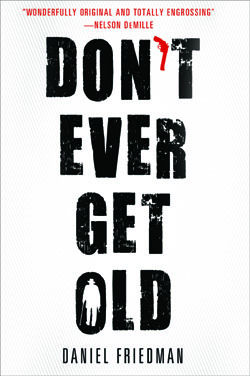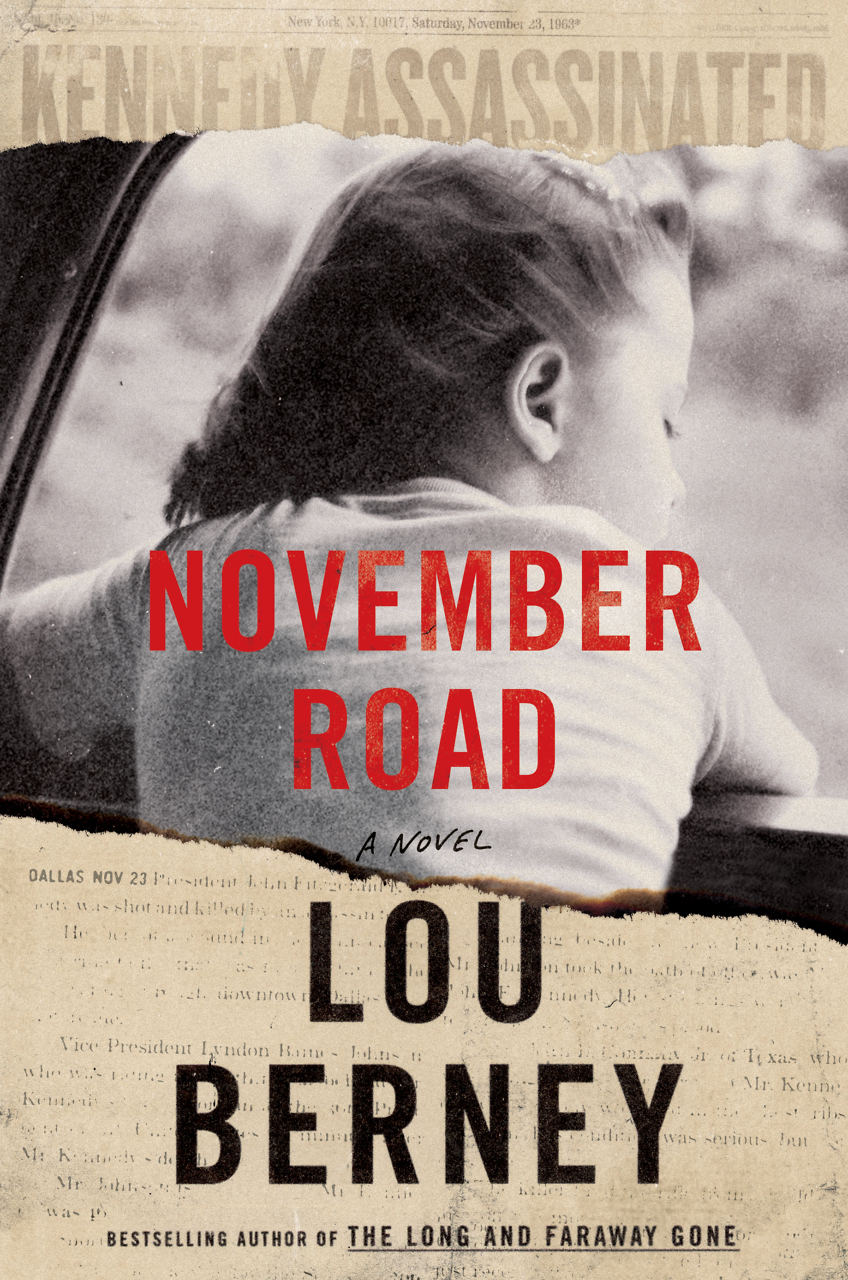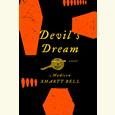Whodunit, Geriatric Style
In a dazzling debut mystery, Daniel Friedman creates an original and unlikely hero in a gruff but lovable octogenarian
Debut novelist Daniel Friedman’s Don’t Ever Get Old received starred reviews from all four of the pre-publication literary tastemakers (Kirkus, Library Journal, Publishers Weekly, and Booklist), which happens about as often as newspapers announce they’re expanding their book coverage. Friedman’s hilarious protagonist is eighty-seven-year-old “Buck” Schatz, a legendary Memphis ex-cop who spends his days on the couch, watching Fox News and anticipating his next bowel movement, until he’s inconveniently distracted from it all and must hunt down an escaped Nazi war criminal who nearly killed him.
Schatz is the kind of guy you’d get if you could somehow combine the fathers in To Kill a Mockingbird and $#*! My Dad Says. Loyal, upright, and devoted to his wife, he is nevertheless irascible, crude, barely capable of showing affection, and unwavering in his commitment to Lucky Strikes, which he smokes whenever he feels likes it, church pews and bank lobbies be damned. “Not having to care about making things easy for anyone else is one of the three best things about being old,” Schatz observes. “The other two are smoking and telling people what I think about them. I never go anywhere that I can’t do at least two out of the three.”
 Though Schatz tends to forget things, bruises easily, and has been retired for more than thirty years, the deathbed confession of fellow World War II veteran Jim Wallace sets off a series of events that sends the old investigator back into sleuth mode. Wallace and Schatz had been held in the same POW camp, but Wallace, it turns out, made a trade at the end of the war: in exchange for a bar of gold stolen from Holocaust victims, he had allowed the reportedly dead commandant of the camp to pass through a military checkpoint, despite the fact that the man had personally beaten his buddy Schatz to a bloody pulp, leaving him in a coma. Wallace’s act of personal and national disloyalty allowed Heinrich Ziegler to escape prosecution for his many war crimes.
Though Schatz tends to forget things, bruises easily, and has been retired for more than thirty years, the deathbed confession of fellow World War II veteran Jim Wallace sets off a series of events that sends the old investigator back into sleuth mode. Wallace and Schatz had been held in the same POW camp, but Wallace, it turns out, made a trade at the end of the war: in exchange for a bar of gold stolen from Holocaust victims, he had allowed the reportedly dead commandant of the camp to pass through a military checkpoint, despite the fact that the man had personally beaten his buddy Schatz to a bloody pulp, leaving him in a coma. Wallace’s act of personal and national disloyalty allowed Heinrich Ziegler to escape prosecution for his many war crimes.
“The very idea of a Jewish army lieutenant offended [Ziegler],” Friedman writes. “A man called Baruch Schatz couldn’t hide his ethno-religious persuasion behind a Tennessee accent. My father had wanted to name me Grant, but my mother thought that would cause problems for me in the schoolyard, what with so many folks in Memphis still sore about the North’s aggression. So, instead, I got saddled with a moniker that was perfectly good for my maternal grandfather, who spent his whole life in a nineteenth-century Polish shtetl, but it wasn’t what a fellow wanted stamped on his dog tag when he was captured by the Nazis.”
There is every reason to believe Ziegler is still alive. Before he goes code blue, freeing Schatz to return to his talk shows and obsession with mortality, Wallace explains that there is a lot more gold where his came from. Unfortunately, in a deathbed attempt at redemption, Wallace has given others this news, too, including a sleazy preacher, his daughter Emily, and his stumblebum son-in-law Norris. Before long, an Israeli agent and a greasy Tunica-casino debt collector also enter the picture, and all jockey for a share of the stolen gold treasure. Naturally, people start dying—or, to be more precise, being murdered and left with their torsos hollowed out and their entrails on the floor. Someone’s willing to kill to get the gold. In the ensuing whodunit, Schatz teams up with grandson Billy (a law-school graduate better known by his fraternity nickname “Tequila”) to find Ziegler and the treasure.
 The plot of Don’t Ever Get Old is seductive and unpredictable, but the real thrill is Friedman’s comic genius. With his geriatric ailments and his self-deprecating sarcasm, Schatz, who narrates the book, is nothing short of hysterical. After meeting the creepy Baptist preacher Lawrence Kind, for example, Schatz observes, “He beamed at me, and his reptile face filled with God’s boundless love. I thought I felt a chill run up my spine, but it could have been just poor circulation.” Asked how he treated a mayor who was once suspected of knocking off his mistress, Schatz says, “Well, you know, I am a man of class and subtlety, so I kicked in the door of his house at five in the morning, threw the cuffs on him in front of his kids, and frog-walked him into the police station in his bathrobe, so all the press I’d tipped off could take his picture.”
The plot of Don’t Ever Get Old is seductive and unpredictable, but the real thrill is Friedman’s comic genius. With his geriatric ailments and his self-deprecating sarcasm, Schatz, who narrates the book, is nothing short of hysterical. After meeting the creepy Baptist preacher Lawrence Kind, for example, Schatz observes, “He beamed at me, and his reptile face filled with God’s boundless love. I thought I felt a chill run up my spine, but it could have been just poor circulation.” Asked how he treated a mayor who was once suspected of knocking off his mistress, Schatz says, “Well, you know, I am a man of class and subtlety, so I kicked in the door of his house at five in the morning, threw the cuffs on him in front of his kids, and frog-walked him into the police station in his bathrobe, so all the press I’d tipped off could take his picture.”
Daniel Friedman now practices law in New York City, but he grew up in Memphis. His mother, Elaine, a high-school teacher of deaf students, and Friedman’s three surviving grandparents still live there. Though Don’t Ever Get Old is not remotely an autobiographical novel, the family influences are clear. In an email, Friedman told Chapter 16 that Buck Schatz is based loosely—“especially in the first drafts of the first scenes I came up with”—on his grandfather Buddy Friedman, a Memphis native and World War II veteran who’s now ninety-six. [To read the full interview, click here.]
In addition to the wonderful abundance of humor, the masterful creation of a memorable character, and a more-than-satisfying mystery, Friedman’s first book manages a sweet dose of sentimentality, too. Long live Buck Schatz, and may his investigations, and bowel movements, be prolific.
On June 7 at 6 p.m., Daniel Friedman will discuss Don’t Ever Get Old at the Booksellers at Laurelwood in Memphis.


